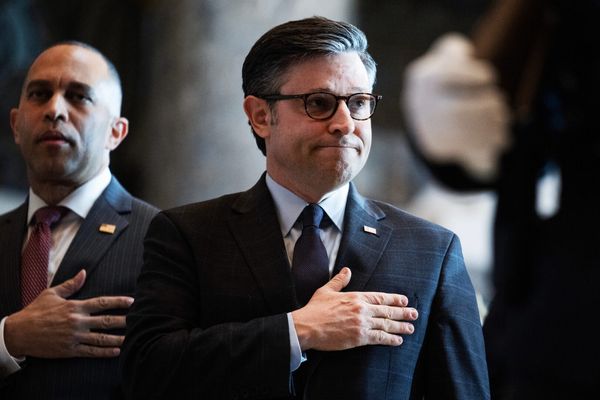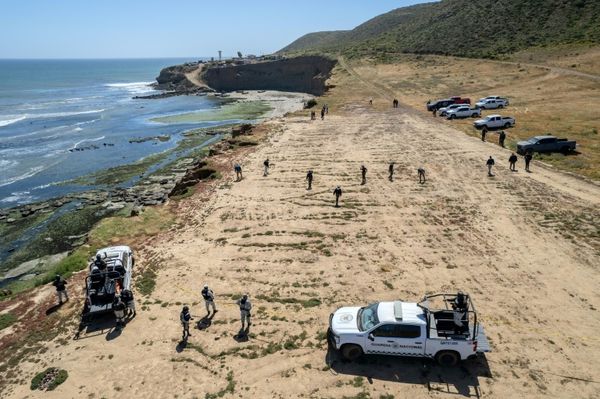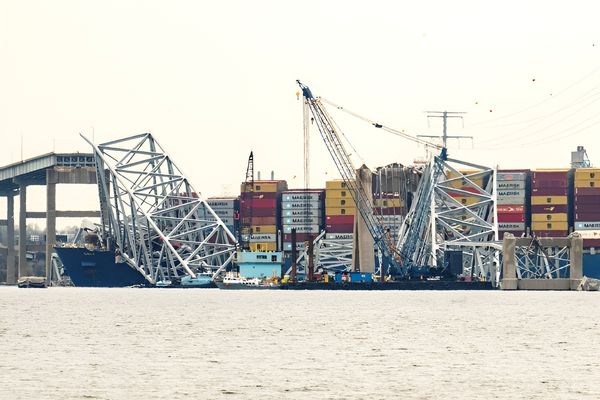
Before last summer’s Edinburgh international book festival (EIBF) had even begun, it was already the subject of a high-profile boycott and petition.
In July, Scottish investigative news site the Ferret calculated that the festival’s lead sponsor, investment management firm Baillie Gifford, had up to £5bn invested in companies profiting from fossil fuels. Days later, Greta Thunberg pulled out from her scheduled talk, accusing Baillie Gifford of greenwashing. Soon, more than 50 authors and event chairs including Zadie Smith, Ali Smith and Katherine Rundell had signed a letter calling on the company to stop investing in fossil fuel-linked businesses. If that demand wasn’t met, the group said that Edinburgh should find a new sponsor – and if it didn’t, authors should boycott the 2024 festival.
Organisers are now gearing up for the August festival, and new director Jenny Niven says she sees this year as something of a “relaunch”. The founder of Edinburgh’s poetry and spoken word festival Push the Boat Out has taken over from Nick Barley, who ran EIBF for 14 years. Niven’s “relaunch” will see the festival move to a new venue: the Edinburgh Futures Institute, part of the University of Edinburgh located in the restored Royal Infirmary. The controversial sponsorship arrangement remains in place, however: Baillie Gifford will still be a “major part” of the festival, the new director confirms.
Though Niven took over the director role in September last year, her appointment had been announced in June, before the sponsorship argument kicked off. “I’ve been spending some of the time doing things that I didn’t expect to be doing,” she says of the controversy. “But that’s just the nature of the beast.”
The event will “continue to rely on a mix of public, and corporate, and philanthropic funding, and we’ll be very grateful for that”, says Niven. She and the other organisers believe that “all parts of society should be contributing [to] and valuing the arts, because of the role that arts and culture play in health and wellbeing, in education, in social cohesion.” One initiative Baillie Gifford has sponsored for “many years”, says Niven, is providing free tickets, transport and books to children attending the festival on school trips.
Niven says that “we need to be really careful what we wish for” regarding sponsorship. There have been cases “where funding has disappeared and projects have just stopped”, she points out, drawing attention to Glasgow’s Aye Write festival, which was cancelled this year after its funding application was rejected by public funding body Creative Scotland. “We are not the only festival, nor the only arts and cultural organisation that is supported in this way,” she adds. Baillie Gifford sponsors a number of other literary festivals including Hay, Cheltenham and Cambridge, as well as the Baillie Gifford prize, the most prestigious nonfiction writing prize in the UK.
At last year’s EIBF, activist and author Mikaela Loach staged a protest against Baillie Gifford’s investments, and following the festival the campaign group Fossil Free Books (FFB) was formed. In October last year more than 150 authors and book industry professionals signed a statement by FFB calling on Baillie Gifford to divest from fossil fuels.
The theme of this year’s EIBF is “future tense”, because society is “grappling with so many big systemic challenges” across politics, economics and climate, says Niven.
Author Yara Rodrigues Fowler, one of FFB’s core organisers, says she thinks “the ‘relaunch’ and new ‘future’ theme are just optics.”
“The festival hasn’t addressed the concerns raised by hundreds of authors last year, and, at the end of the day, the climate crisis isn’t being caused by plastic cups at literary festivals, it’s being caused by fossil fuel companies”, she adds. “Baillie Gifford has decided to sponsor literary festivals for a reason; I urge Baillie Gifford, and their clients, to listen to the concerns of authors and divest.”
Asked about last year’s backlash, Niven says that a “plurality of voices” is “absolutely essential” in moving towards a just transition. “If you don’t want writers to speak their minds, then you probably shouldn’t be running a book festival,” she adds. Last year’s debate encouraged people to “think with a bit more nuance” about divestment, meaning there is now a “greater understanding of these issues” within the literary community, says Niven. Yet she expects similar pushback this year, because “those issues are not solved and they’re not going away”. At the 2024 festival there will be “space for welcome disagreement”.
A spokesperson from FFB has told the Guardian that it recommends that authors decline invitations to festivals sponsored by Baillie Gifford, or use appearances to call on the company to divest from the fossil fuel industry. It is now working to arrange support for authors who decline festival invitations. “These festivals are our livelihoods and we care about them deeply,” the representative says. “We don’t want to shut these festivals down, nor can we afford to.”
FFB believes that divestment by Baillie Gifford “should be achievable” because the investments make up a “small percentage” of the investment management firm’s portfolio, the spokesperson adds. According to Baillie Gifford, just 2% of its clients’ money is invested in companies with more than 5% of their revenue coming from some form of fossil fuel activities, compared with the market average of 11%.
The spokesperson also drew attention to a December report that named Baillie Gifford as an investor in businesses that are linked to Israeli settlements in the West Bank. The campaign group also calls on Baillie Gifford to divest from these companies.
Niven says that last year’s controversy has “not made a major impact” on getting authors on board for 2024. When authors have raised the sponsorship issue, organisers have engaged in “robust” conversation with them. “We’re also remaining in dialogue with people who signed the letter, we’re continuing to talk to Baillie Gifford”.
A spokesperson from Baillie Gifford says that the company is “committed to thoughtfully analysing all the businesses we invest in and believe they must act responsibly and legally. We take this duty seriously and, like other firms in our industry, are guided by international sanctions.”
Niven says she sees it as a “a privilege” to take the festival “into the next chapter”.” The festival is “ready for a good shake-up”, she adds, “and I feel really confident that I’m the person to do it”.







